Voebe de Gruyter 1
Voebe de Gruyter 2
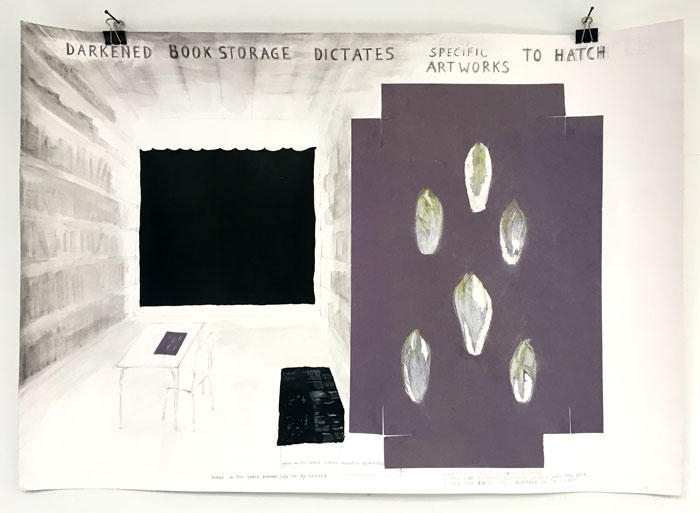
'Darkened Book storage dictates art work to hatch', 2020
70 x 100 cm
pencil, gouache, ink on paper
Voebe de Gruyter
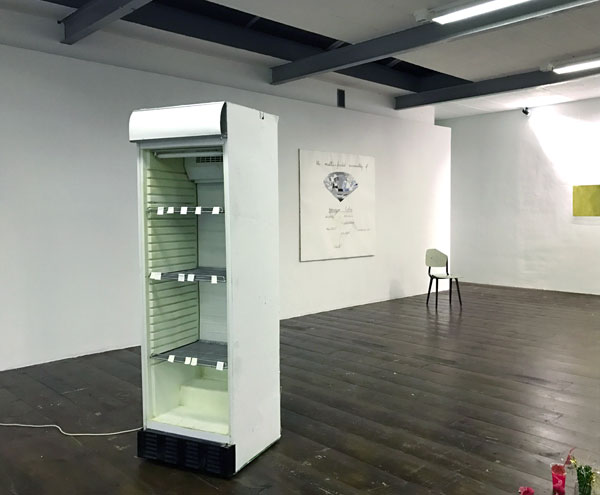
'Refrigerator from Lithuania', 2017
190 x 60 x 65 cm
refrigerator, bass pump, cards
Voebe de Gruyter
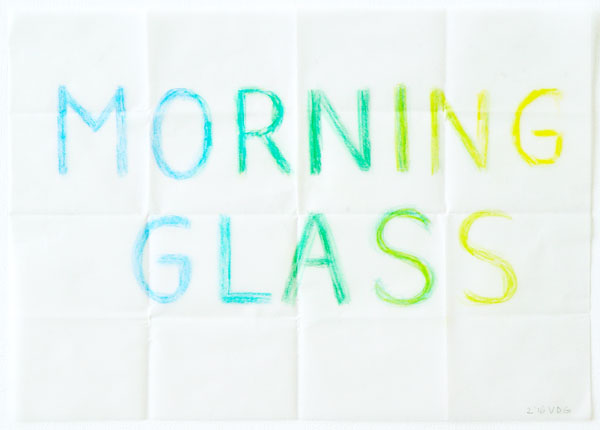
'Morning glass', 2016 21 x 29,7 cm
colour pencil, folded tracing paper
Voebe de Gruyter
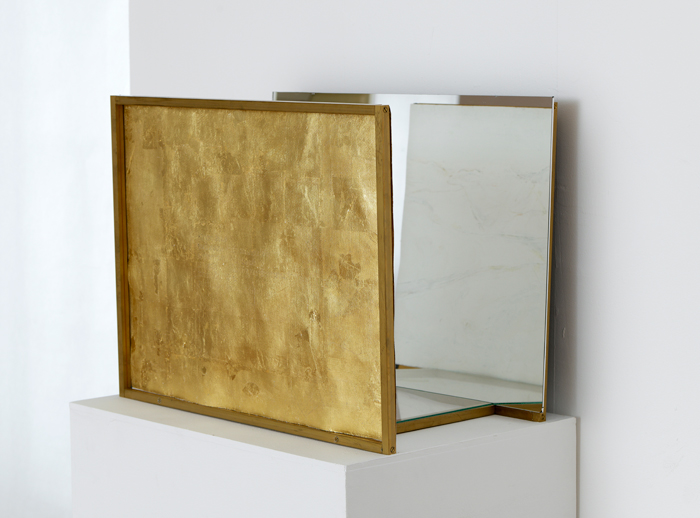
'The Long Nails on the Little Fingers of Asian bus drivers', 2016-2017
ca 60 x 80 x 25 cm
handmade paper, 22 karat gold leaf, gouache (cornucopia), Thai text in blind relief print, mirror, hanging system
Voebe de Gruyter
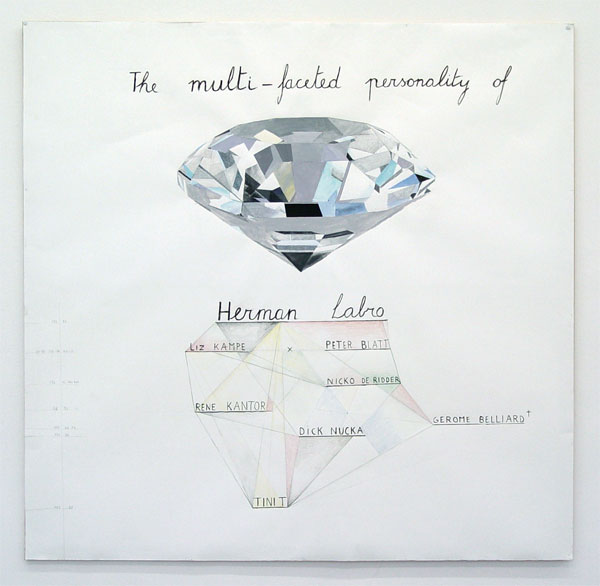
'Herman Labro's multi-facetted personality' 2016
147 x 151 cm
gouache, pencil drawing on paper
Voebe de Gruyter
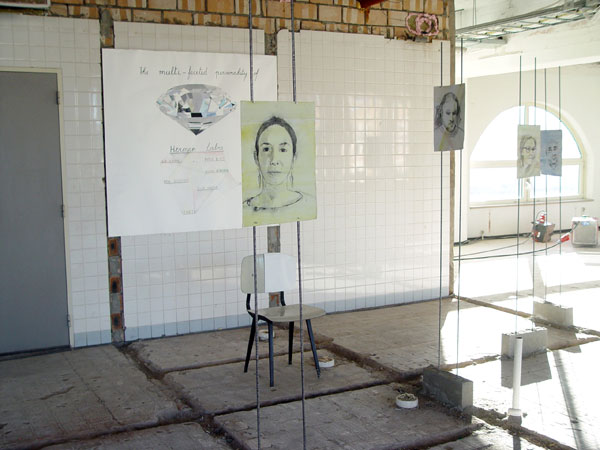
'Herman Labro's multi-facetted personality' 2016
installation at Big Art 2016, Amsterdam
VdG: 'Twenty years ago Herman invited me for a solo show with another artist. At the opening the other
artist didn't show up. Over the next years and on a regular base Herman invited me in group shows he had
organised. Last year I came to know that Herman himself had been the other artist I had exhibited with
in my first solo show and later on when Herman's protagonists and onlookers joined me in several group shows.
During the exhibition Big Art in the Diamantbeurs in Amsterdam Herman will be attending the opening, after
that you can phone him about the careers he develops in himself.'
Voebe de Gruyter
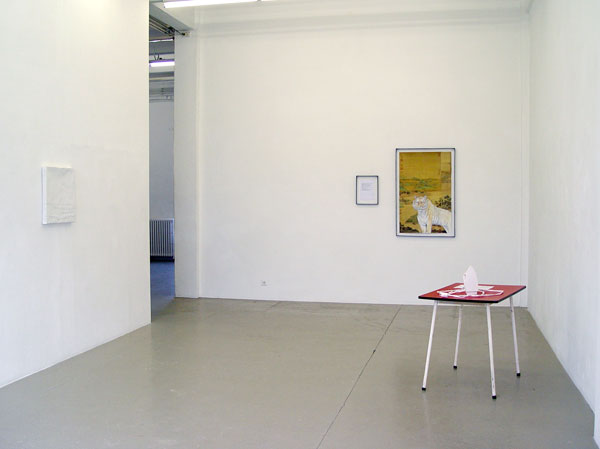
view exhibition 'Atomes Crochus', 2016
Voebe de Gruyter
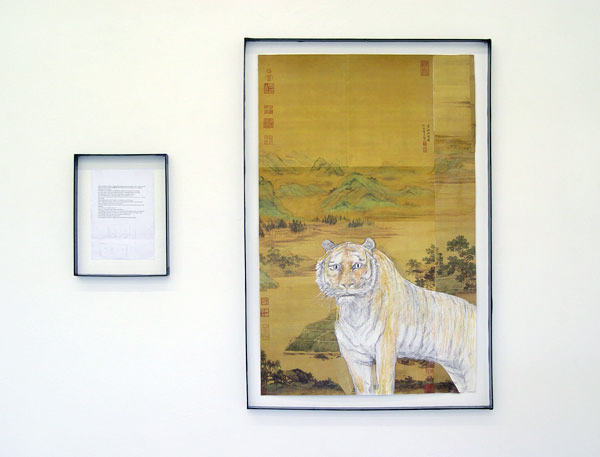
'De gedeelde tijger' (The shared tiger), 2016
40 x 30 cm / ca 120 x 135 x 4 cm
colour pencil, offset print, collage, text with pencil drawing,
two contour frames of black taped strips of cardboard
The old Chinese village is embedded between green mountains with rounded peaks.
Higher up there are five-metre-tall stone pillars with the names of the villagers engraved at the bottom.
The pillars are arranged in a semicircle opposite the entrance to a temple, as I walk inside, I can see
candles burning on a sacrificial altar in the dark.
Tall paintings in metal frames are suspended in opposite corners.
From the left picture, a giant tiger casts a piercing stare at you. Its front paws are higher, turned towards
the mountains in the background, ready for the journey.
Some villagers are shown in front of it, at half the size of the tiger.
On the right-hand picture, you can see the tiger descending from the mountain.
People working in the field turn their heads. Looking outside through the steel window frame, the view is identical to that in the paintings.
This is where the painter stood.
And then, I notice that the irises of the tiger's eyes are rectangular.
I immediately sense that a part of me is flowing into the tiger's body, as if between communicating vessels.
The closer I watch, the more I take on the tiger's body. In this shared state, we enter the mountains, without fear.
No one knows just when we will return.
In our absence, returning villagers are continuously burning candles.
Voebe de Gruyter
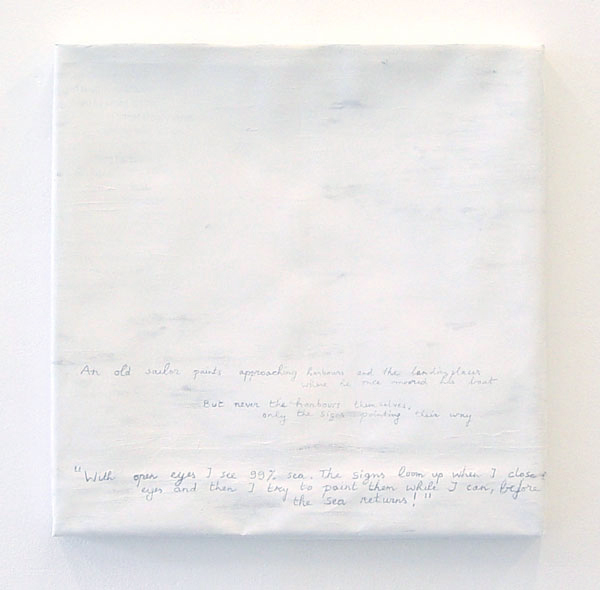
'An old sailor', 2016
50 x 50 x 4,5 cm
pencil, paint on print, glued paper box, hand written text
An old sailor paints approaching harbours and the landing places
where he once moored his boat
but never the harbours themselves,
only the signs pointing their way.
"With open eyes I see 99% sea. The signs loom up when I closed my eyes
and then I try to paint them while I can,
before the sea returns."
Voebe de Gruyter
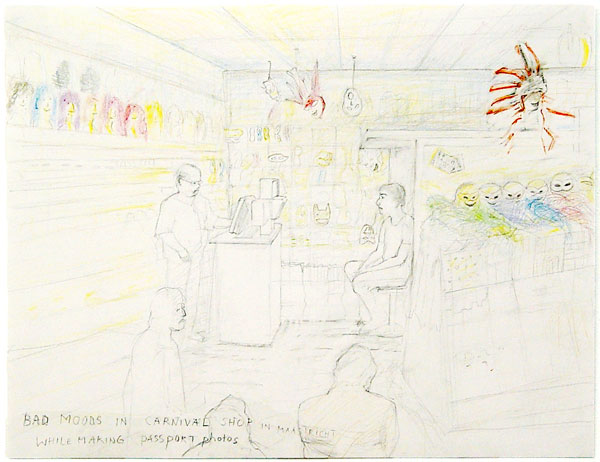
'Bad moods in carnaval shop in Maastricht while making passport photos', 2016
50 x 65 cm
colour pencil on paper
Voebe de Gruyter
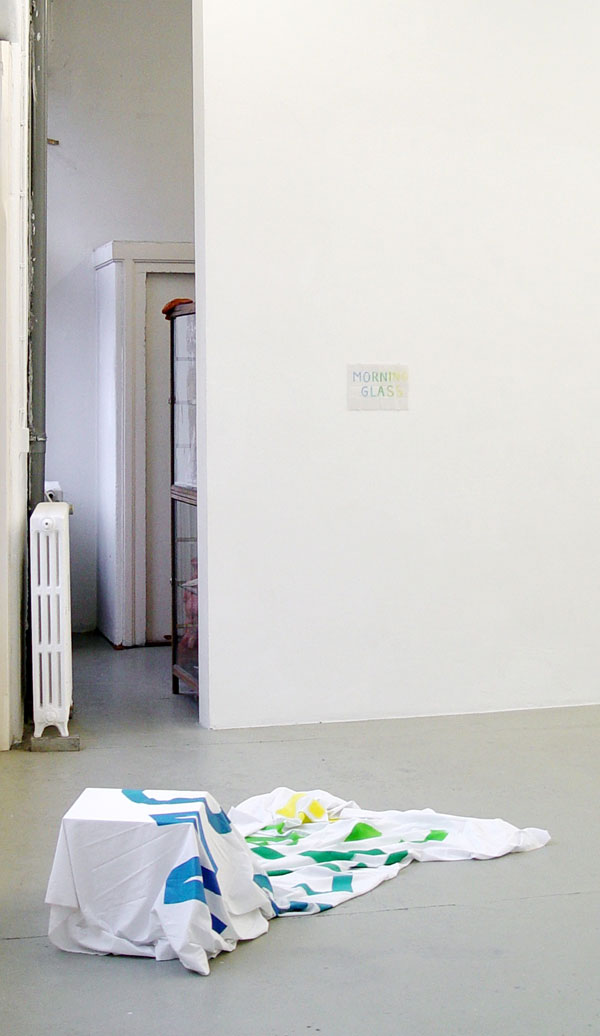
'Morning Glass', 2016
installation, variable sizes
textile paint on blanket, colour pencil, tracing paper
Voebe de Gruyter
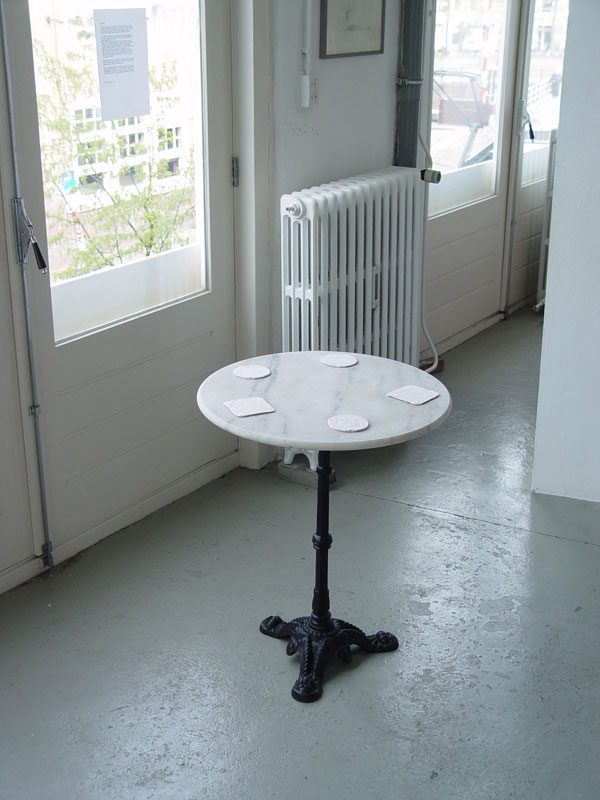
'Beer felts', 2016
terrace table, chewed beer felts, text on A4 (here on window)
I invited my students to chew "old Dutch" paper during my lecture
at La Cambre art academy in Brussels. Later on we continued chatting
and chewing the paper in a bar. The following days I made beer felts
from the mashed bunch of paper that I had taken home.
In my lecture I focused on one of my works: a radio investigation on
the origin of papier-mâché and the life of the Dutch paper-hanger
Hendrik Berck (1790-1860). Berck had two practices: most of the year
he worked as a paper hanger in his hometown Dordrecht. In wintertime,
when there was no paper hanging work, and in his free time he and his family
chewed "old Dutch" paper in front of the stove. By modeling it in the right
shape he made his bavelaars as an art practice.
The main practice of the students is the academic art practice; in their
free time they go out and drink a beer. Gradually and when they finish their
academy the art practice will change into a going out practice of life itself.
In the case of Berck most of his time he was surrounded by his wall paper
and then he transformed this into a three-dimensional paper scenery of a place
where he would like to be.
After their academic education the student's works will be shattered and
spread in and around town. You will find pieces of their work in conversations
on the street or on the skin of a baby or in the wine you are drinking right now.
It is no longer recognizable as an object.
Voebe de Gruyter, 2016
Voebe de Gruyter
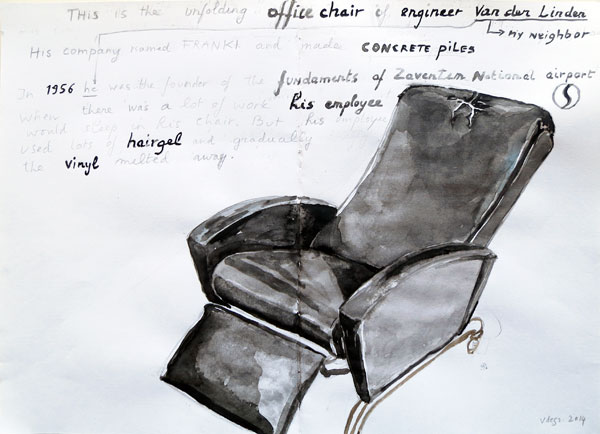
'The chair of engineer Van der Linden', 2014
41 x 30 cm
water colour, pencil on paper
Voebe de Gruyter
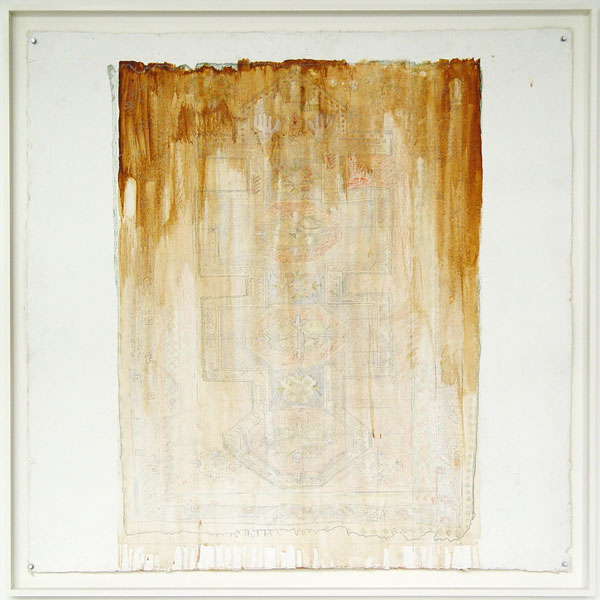
'My grandmother's carpet', 2012
104 x 102 cm
water colour, pencil, colour pencil, paper / private collection
Voebe de Gruyter
Stored Sentences
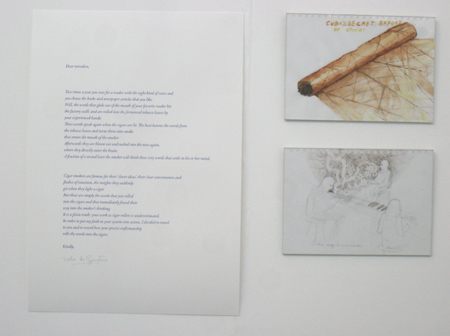
'Dear torcedors', 2009
ca 60 x 75 cm, 3 parts
printed text, drawings
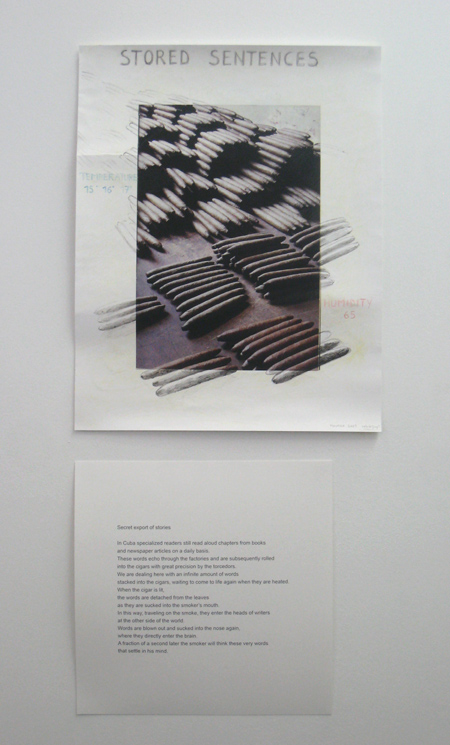
'Stored sentences', 2009
ca 50 x 75 cm, 2 parts
printed text, drawing on digital print
In Cuba specialized readers still read aloud chapters from books
and newspaper articles on a daily basis.
These words echo through the factories and are subsequently rolled
into the cigars with great precision by the torcedors.
We are dealing here with an infinite amount of words
stacked into the cigars, waiting to come to life again when they are heated.
When the cigar is lit,
the words are detached from the leaves
as they are sucked into the smoker's mouth.
In this way, traveling on the smoke, they enter the heads of writers
at the other side of the world.
Words are blown out and sucked into the nose again,
where they directly enter the brain.
A fraction of a second later the smoker will think these very words
that settle in his mind.
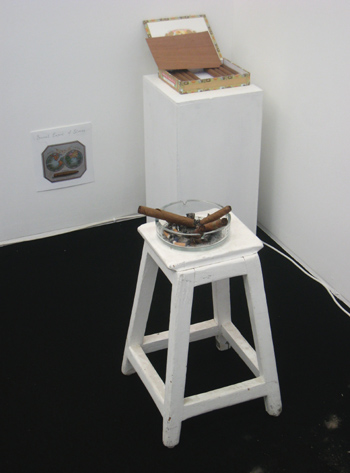
'Waiting Words', 2009
installation with box of Havana cigars, digital print with handwritten text: 'Secret export of stories'
certificate with instructions
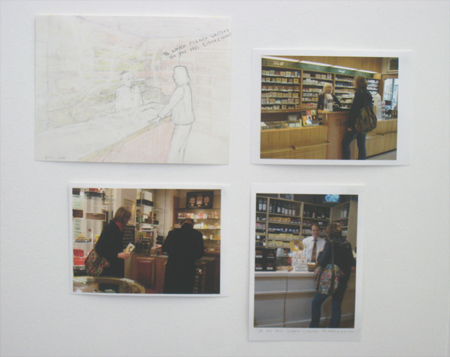
'Investigation selling Cuban cigars', 2009
ca 55 x 55 cm
pencil on paper, digital prints, 4 parts
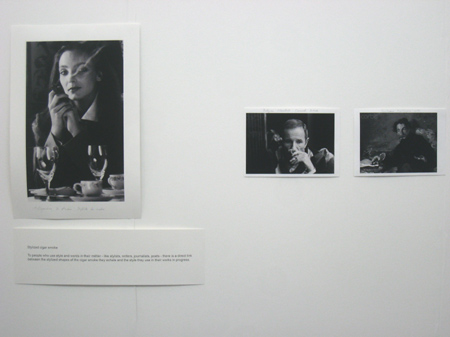
'Stylized cigar smoke', 2009
ca 60 x 75 cm, 3 parts
printed text, three photos
To people who use style and words in their métier - like stylists,
writers, journalists, poets - there is a direct link between the stylized
shapes of the cigar smoke they exhale and the style they use
in their works in progress.
Voebe de Gruyter
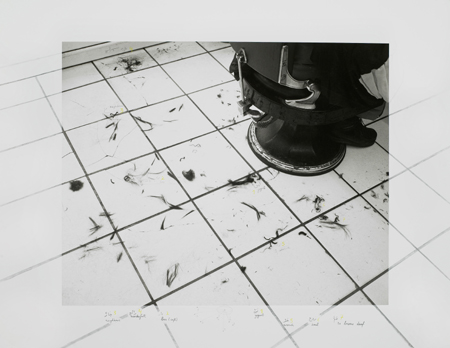
'The warmth of the soul of my wonderfull neighbour; he became deaf in a bar where I often drank yogurt, 2009
ca 80 x 104 cm
pencil on photographic print
private collection
Voebe de Gruyter
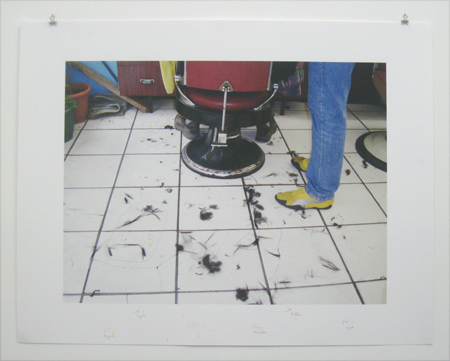
'Thunder in August, shows the right bottom of a tiger', 2009
ca 80 x 104 cm
pencil on photographic print
Voebe de Gruyter
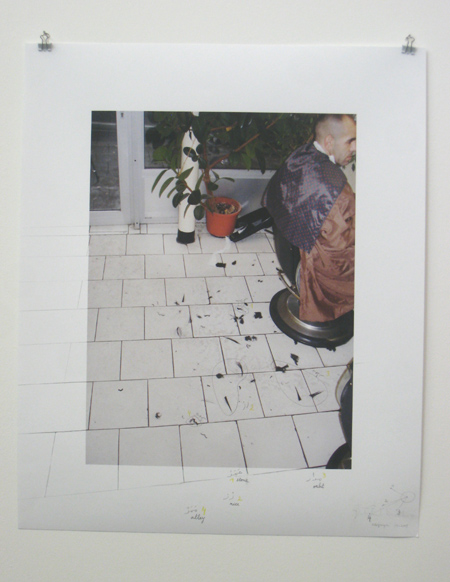
'Rice, alley and stones in orbit', 2009
ca 0 x 0 cm
pencil on photographic print
Voebe de Gruyter
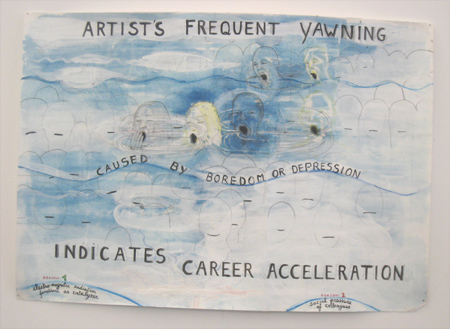
'Artist's frequent yawning', 2009
pencil, acrylic paint, crayon on paper
Voebe de Gruyter
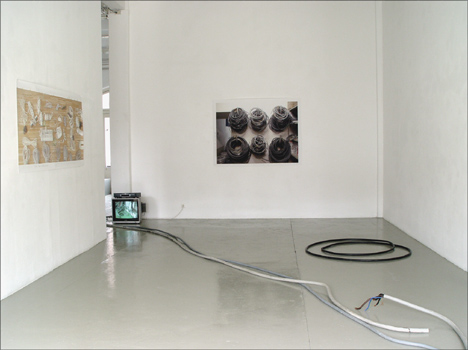
exhibition view 'Transport of images', 2005
Voebe de Gruyter
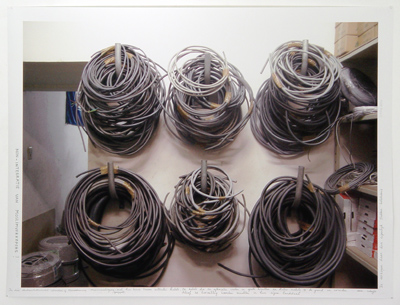
'Non-integratie van Moslimverkopers!', 2009
122 x 163 cm
pencil on mat printed photo
Voebe de Gruyter
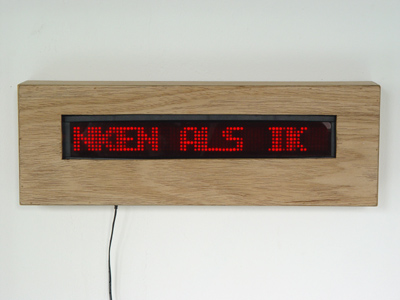
Ik kan bijna niet denken als ik stilsta / It is hardly possible to think when I stand still, 2005
17 x 50 x 8,5 cm
display in wooden case
Voebe de Gruyter
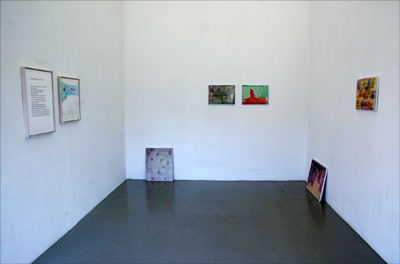
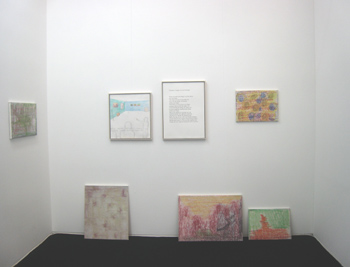
'Transport of images', 2005
installation
left: view solo exhibition Galerie van Gelder 2005 / right: view solo stand Art Amsterdam 2009
details of installation:
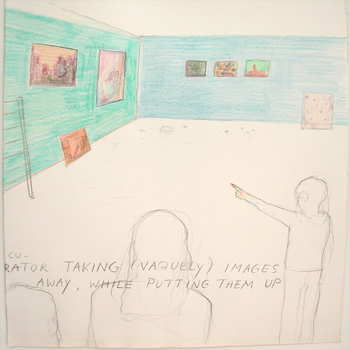
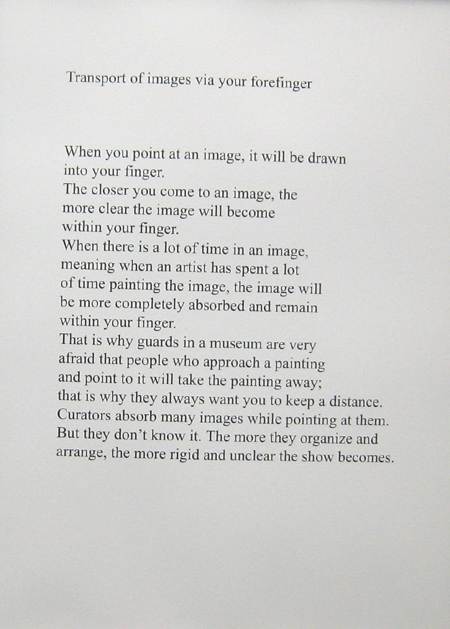
Transport of images via your forefinger
(both drawing and text print in wooden frame)
Voebe de Gruyter
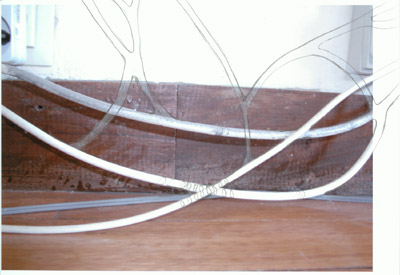
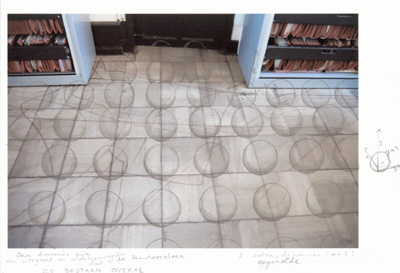
'Snoertheorie', 2003
drawings on photo, 21 x 30 cm, 7parts
Voebe de Gruyter
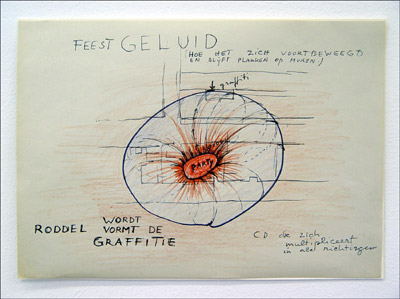
'Party 3', 2003
21 x 30 cm, drawing on grey paper
Voebe de Gruyter
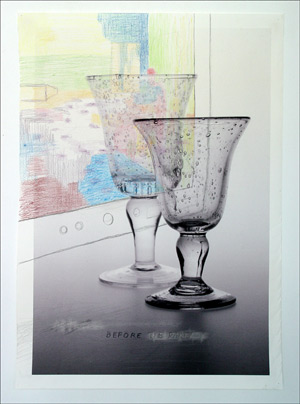
'Before the party', 2000
93,5 x 68 cm, drawing on photo, frame
Voebe de Gruyter

'Leftovers (after the party)', 2000
156,5 x 130 cm, drawing on photo, aluminum
Voebe de Gruyter
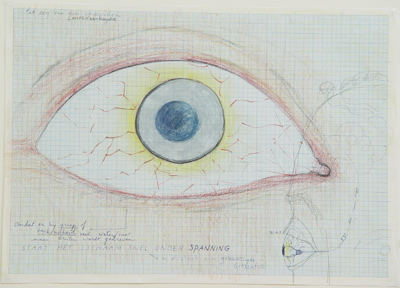
'Het oog van een verkouden lampenverkoopster', z.j.
30 x 40 cm, kleurpotlood, balpeninkt op ruitjespapier
Voebe de Gruyter
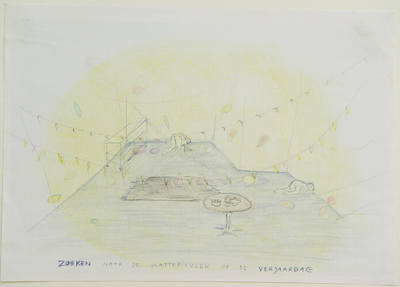
'Zoeken naar de kattepisvlek op de verjaardag', z.j.
30 x 40 cm, kleurpotlood, balpeninkt op papier
Voebe de Gruyter
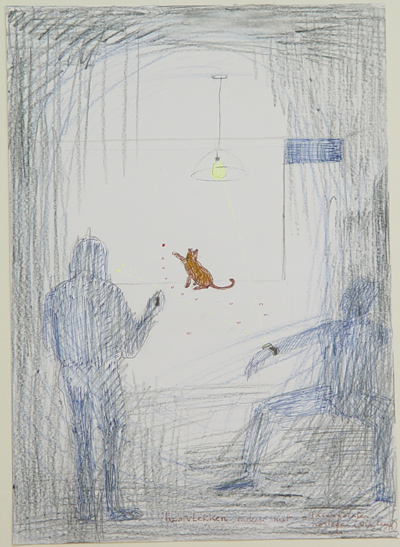
'Lichtvlekken maken', z.j.
40 x 30 cm, kleurpotlood, balpeninkt op papier
Voebe de Gruyter
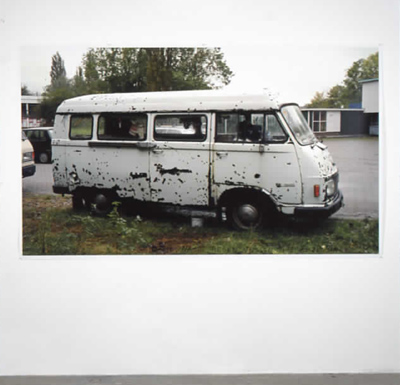
'Busje, na de regen, tussen twee reizen in', 1997-'99
137,5 x 225,5 cm, colour photo, ink
Voebe de Gruyter
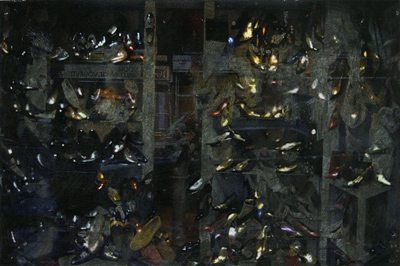
untitled, 1997
18,9 x 28,6 cm, pencil on offset
Voebe de Gruyter
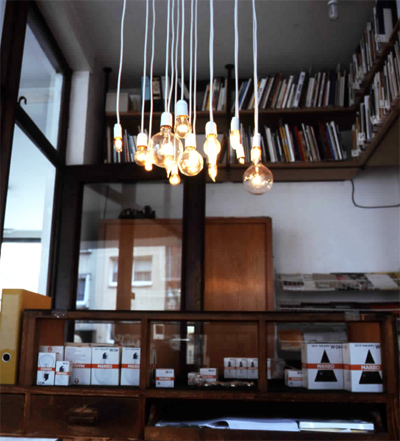
'Gloeilampen', 1996
lamps, certificate with the amount of Watts per lamp
installation sales desk in Neuer Aachener Kunstverein, 1996
Voebe de Gruyter
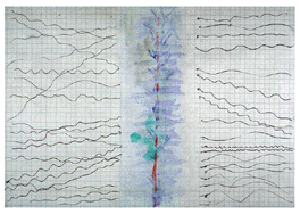
'Doorsnede van een muur', 1996
21 x 30 cm, watercolour, ballpoint ink on paper
Voebe de Gruyter
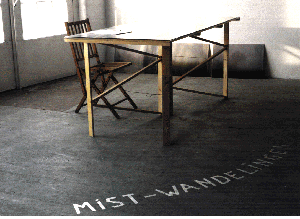
'Mistwandelingen in 5 gradaties', 1996
('Mistwalks in 5 gradations')
79 x 178 x 89 cm, mixed media
